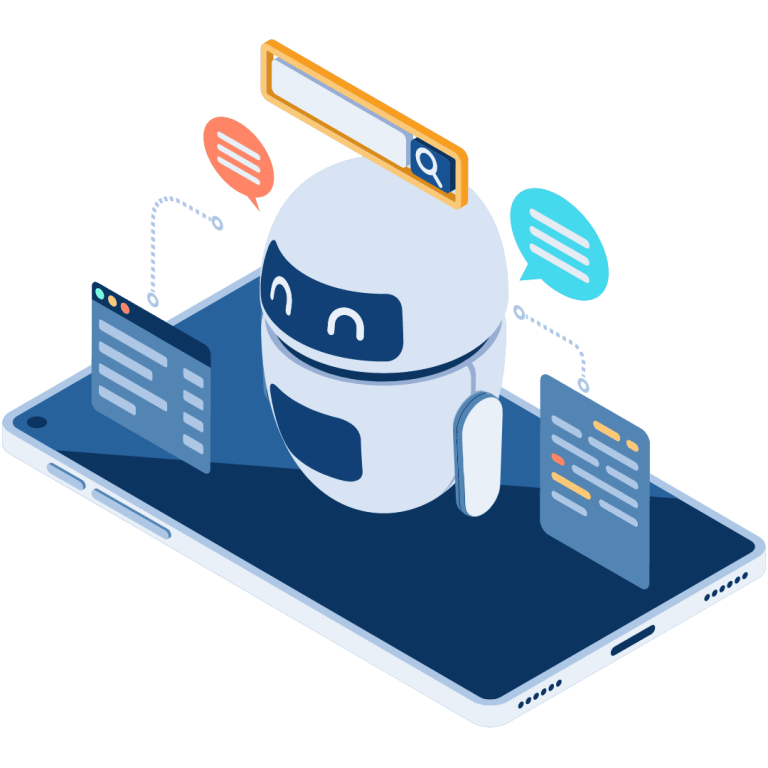The Role of Generative AI in Business Growth
The combination of artificial intelligence with human creativity isn’t just reshaping the digital landscape; it’s revolutionizing how businesses grow, generate content, and innovate. Generative AI, once a dream of science fiction, now intertwines with the fabric of modern business strategy, offering promises and challenges alike.
For business owners, understanding the implications of AI’s generative abilities is no longer optional; it’s quintessential to the art of competitive enterprise. In this comprehensive exploration, we dissect the profound influence of Generative AI on growth, from the boardroom to the virtual shop floor, and beyond.
Generative AI is the practice of creating new content, ideas, or entities by leveraging AI models. In contrast to traditional AI that simply follows predefined rules, generative AI has the freedom to explore a solution space based on vast amounts of data it’s been trained on. The outcomes can vary from images to text, and even beyond, into music and inventions.
On the horizon of business growth, generative AI is noteworthy not only for its capacity to innovate on existing products but also to conceive new ones altogether. It operates at the confluence of creative potential and data-driven decision making, offering a marriage that forges ahead where many traditional processes fall short.
The emergence of generative AI underscores the dawn of an innovative era where businesses can leap ahead not by incremental improvements but by outpacing the competition through entirely novel offerings. Below, we outline the pivotal benefits and the substantial hurdles to harnessing its full potential.

Data Privacy and Security Concerns
The nature of generative AI’s data dependency raises red flags around data privacy and the inherent risk of unauthorized access. With consumer distrust on the rise, businesses must tread carefully and ensure data protocols are airtight.
Robust data governance and adherence to global privacy standards are paramount. Additionally, businesses should consider differential privacy and federated learning as methods to safeguard sensitive data.
Skill Gaps and Training Needs
The competency to understand, develop, and manage generative AI is not common. There is a pressing need for organizations to upskill their workforce or turn to specialists, potentially posing a strain on budgets and timelines.
Investing in continuous learning and development programs can nurture the expertise required. Collaboration with AI specialists and consultancy firms is also a solid strategy to shore up deficiencies.
Integration with Existing Systems
The transition to a generative AI-inclusive business model isn’t always seamless. Compatibility issues with legacy systems and alignment with existing operational frameworks can pose significant roadblocks.
A phased integration approach can lessen the impact on existing infrastructure. It is crucial to conduct thorough compatibility assessments and invest in flexible, future-proof systems that won’t hinder the innovative power of AI.

The trajectory of generative AI suggests a future where business growth becomes synonymous with AI innovation. This predictive prowess can anticipate market movements, foster deeper customer engagement, and optimize internal processes at a level that exceeds human capabilities.
The changing tides of business call for strategies that can swiftly adapt to integrate generative AI. For businesses poised to lead the charge, early investments in AI training, infrastructure, and partnerships will pay dividends in agility and foresight.
The AI-enhanced business environment is no longer a distant vision; it’s a strategic imperative. By cultivating a culture of innovation, maintaining vigilance toward data ethics, and fostering a workforce skilled in the language of AI, businesses can position themselves as front-runners in the generative AI era.
Generative AI is more than just a technological utility; it’s a potent catalyst for driving business growth. However, it’s not a silver bullet; it requires a meticulous approach, a keen recognition of its capabilities, and a concerted effort to address the challenges it presents.
The businesses that will thrive in the era of generative AI are those that understand its role as an enabler of creativity and productivity, those that recognize its potential to reshape industries and customer expectations. In harnessing the power of AI, we stand at a threshold where the only limit to growth is the extent of our imagination.
